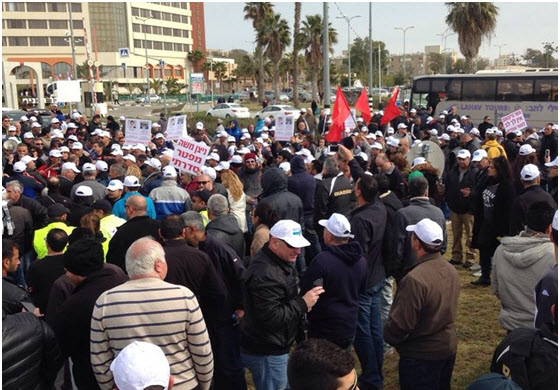The struggle between management of the privatized Israel Chemicals (ICL) and workers at the company’s Bromine Compounds subsidiary is escalating. On Monday, April 6, management sent a letter to all workers at Bromine Compounds warning them that if their sanctions, including strikes, continue, and if the company loses customers as a result, the company will suffer material damage that will require increasing the number of layoffs by 57 workers, beyond the list of those already laid off in the company’s announced cost cutting plan.
In its letter to the workers management wrote: “The strike at Bromine Compounds continues. Nevertheless, the company has continued to supply the needs of its customers from the inventory it stores all over the world in order to retain its customers and ensure its future. As the strike continues, however, the inventory of product is running out, and it is no longer possible to supply the customers’ needs. We are therefore obligated to inform the company’s customers that we will be unable to continue supplying them with products in accordance with the existing agreements and undertakings to customers. We began sending formal notification to customers stating our inability to meet our obligations due to a force majeure event last week.”
For weeks, ICL and the Histadrut (Federation of Labor in Israel) have been at odds over the fate of 140 workers from the Bromide Compounds plant, which the company says has been “unprofitable” for years. In February, the Histadrut threatened a general strike in the South, and shut down a handful of cities. Workers at the Bromine Compounds Plant and the Dead Sea Works stopped operating the plants. In the end, the general strike was called off ahead of the general elections, with the understanding that the company would temporarily freeze the 140 layoffs, but strikes at the factories would continue during negotiations.
The Histadrut has argued that a company such as ICL, which pulls in billions in profits each year, has no reason to lay off so many workers. The employment picture in the country’s south is less rosy than in the rest of the country, meaning that the workers may not have many alternatives.
Related:
Histadrut Threatens Major Strike in South of Israel before Elections



